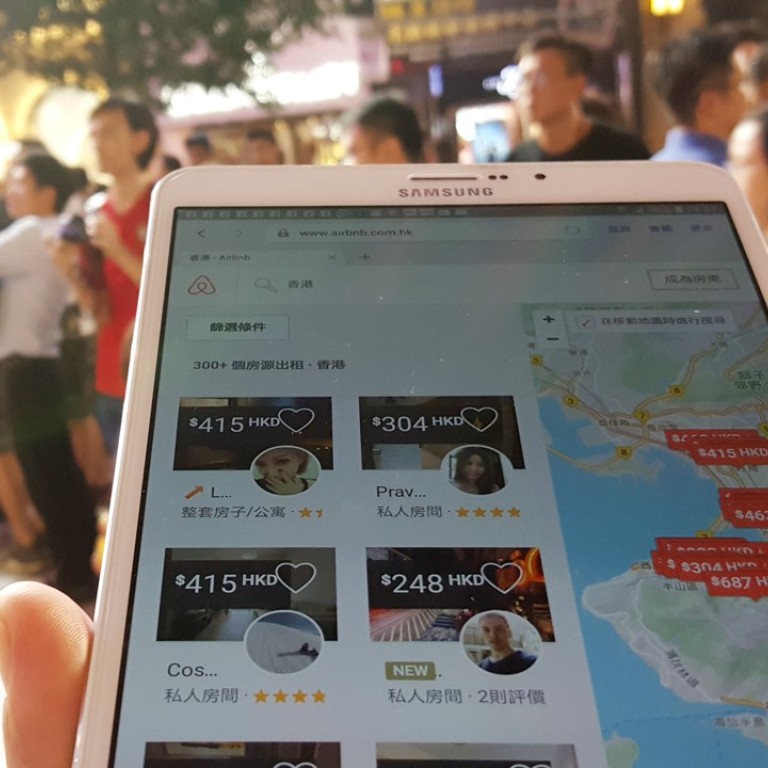
Uber, Airbnb show Hong Kong’s inability to adapt to changing times and technology
Intellectually indolent and thoroughly compromised, the Hong Kong government demonstrated to the world how enfeebled its bureaucrats have become in the face of overpowering entrenched cartels.
Last week, Secretary for Transport and Housing Anthony Cheung Bing-leung said Uber must change its business model and run like existing taxi companies for a chance to be legalised.
“Some companies are just not willing to be regulated under established mechanism,” he said, referring to Uber. “They hope they can run their businesses and not come under any regulations. I believe that no countries and no governments would allow that.”
By convoluting the rule of law into the law of rules, Cheung fails to understand that Uber’s success proves that taxi regulations need to be changed to accommodate the public’s demand for shared-economy technology. Instead, he wastes two and a half years to arrive at a completely biased decision.
Then, the Innovation and Technology Bureau drew withering fire from Uber riders after it sided with the establishment in a Facebook post by saying the ride-hailing service has been “deliberately breaking the law” in the city.
Bureau chief Nicholas Yang Wei-hsiung once praised the firm’s business model as “truly innovative” in 2015. On Saturday, he said that to innovate did not mean breaking the existing rules.
But what if existing rules suffocate innovation? Neither of them are champions of inventiveness, but rather protectors of entrenched interests. Yang and Cheung are doing untold damage to Hong Kong’s credibility.
The government is trying to bury Uber and any ride-hailing threat to Hong Kong’s bloated and greedy taxi licence owners. However, sources tell me that Uber will fight on with its big venture capital war chest.
The bureaucrats’ misconception is framing the case as start-ups versus incumbents rather than finding a way to absorb the innovations blossoming around them. That is why China is blazing a trail in financial technology and ride-hailing – whatever the outcome.
Perhaps Uber’s only salvation in Hong Kong is for Didi Chuxing (its mainland partner) to enter the city and overturn the cartel.
One way or another, a technology wanted by the people will win. The sharing economy is a self-fulfilling, self-perpetuating cycle, drawing in more users over time. Hong Kong’s next sharing battlefront is shared flats and the next contender that the governments must confront is Airbnb. Year-on-year listings are up 68 per cent with 6,500 hosts.
Lou Chan, co-founder and managing director of GuestReady’s operations in Hong Kong, makes it easier for hosts to market their accommodations on Airbnb.
“Our operations have more regulatory clarity in Singapore,” Chan said.
He wonders when and how the Home Affairs Department will enforce or modify current hotel and guest-house lodging rules against Airbnb. Currently, some raids have been carried out where the enforcement trigger is being a nuisance to your neighbours. The Hong Kong Hotels Association has not begun defending its interests.
However, the competitive dynamics for shared lodging are different from ride-hailing. Luxury four- or five-star hotels are not threatened by Airbnb hosts, who rent at much lower rates. And lower-rated hotels can drop rates to the HK$500 price point of Airbnb operators.
Airbnb HK would compete against long-term rentals, serviced apartments or landlords who travel regularly and choose to rent out their flats. Rates varied and some flats rented at HK$2,000 to HK$3,000 a night, Chan said.
So far, hotels have reacted to Airbnb by cutting prices. More boutique hotels are listing in Airbnb. Chan hopes that Airbnb can prove to the government that the sharing economy works by complementing commercial economy. Airbnb is active in China. Mainlanders travelling around China are proliferating its popularity in Hong Kong.
Uber and Airbnb will affect Hong Kong’s perceived ability to adapt to the “Greater Bay Area”, which is being closely watched by the mainland advocates and officials.
According to a report in the South China Morning Post, a mainland official said: “Hong Kong needs to make a rational decision on whether it wants to play a part or not. If Hong Kong is so passive to the level that it is obstructing national strategic development, the policy will be leaning to favour Shenzhen and Macau to replace Hong Kong in terms of industry positioning.”
Of all the ethical lacunae, the spasmodic policy fits displayed by this government is evidence that it would rather see less change when it comes to innovation.
Bureaucrats delay critical decisions so that they do not have to deliver clear recommendations to their seniors. None of them sees any value in decisively leading any issue.
Peter Guy is a financial writer and former international banker

